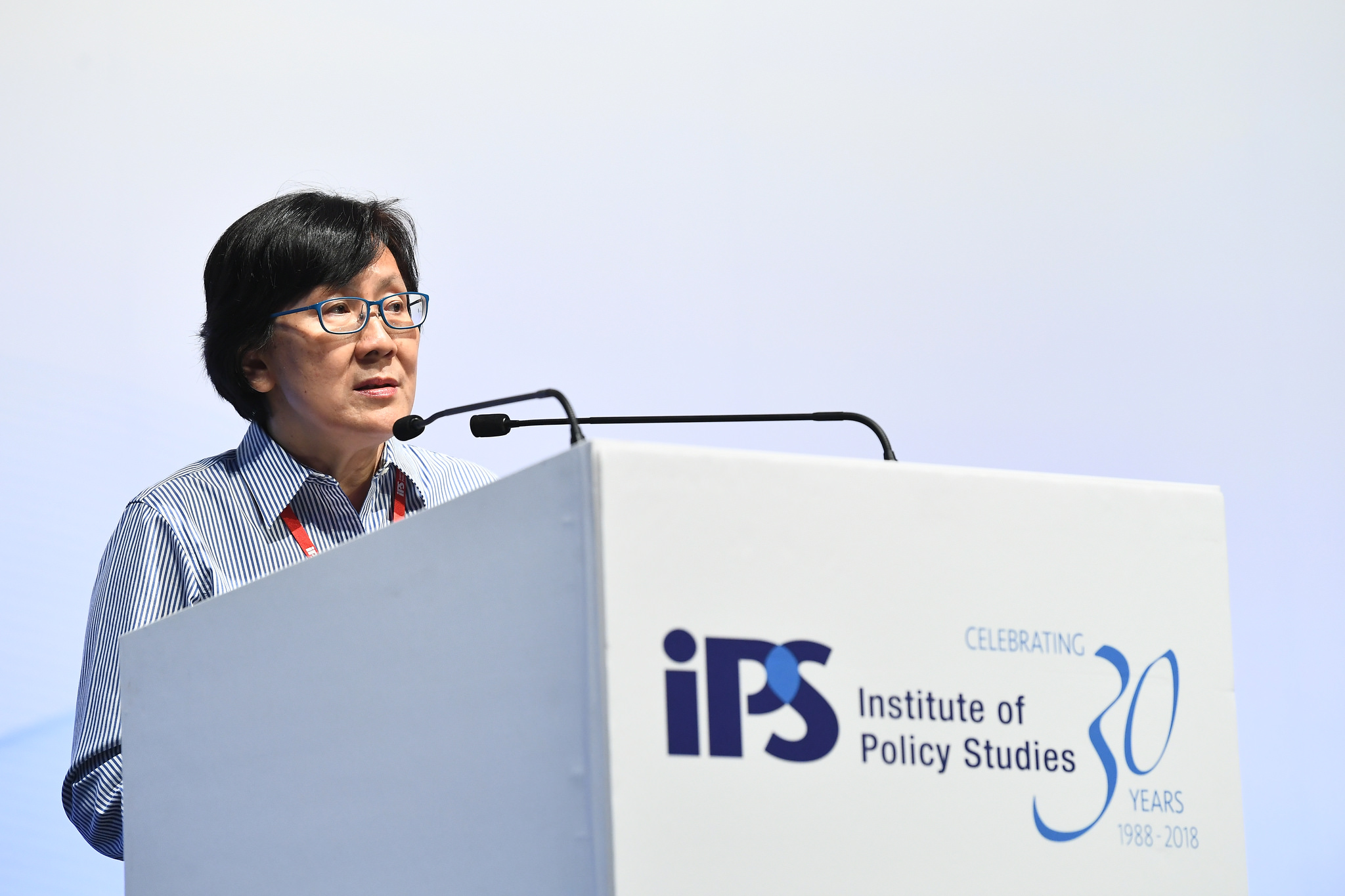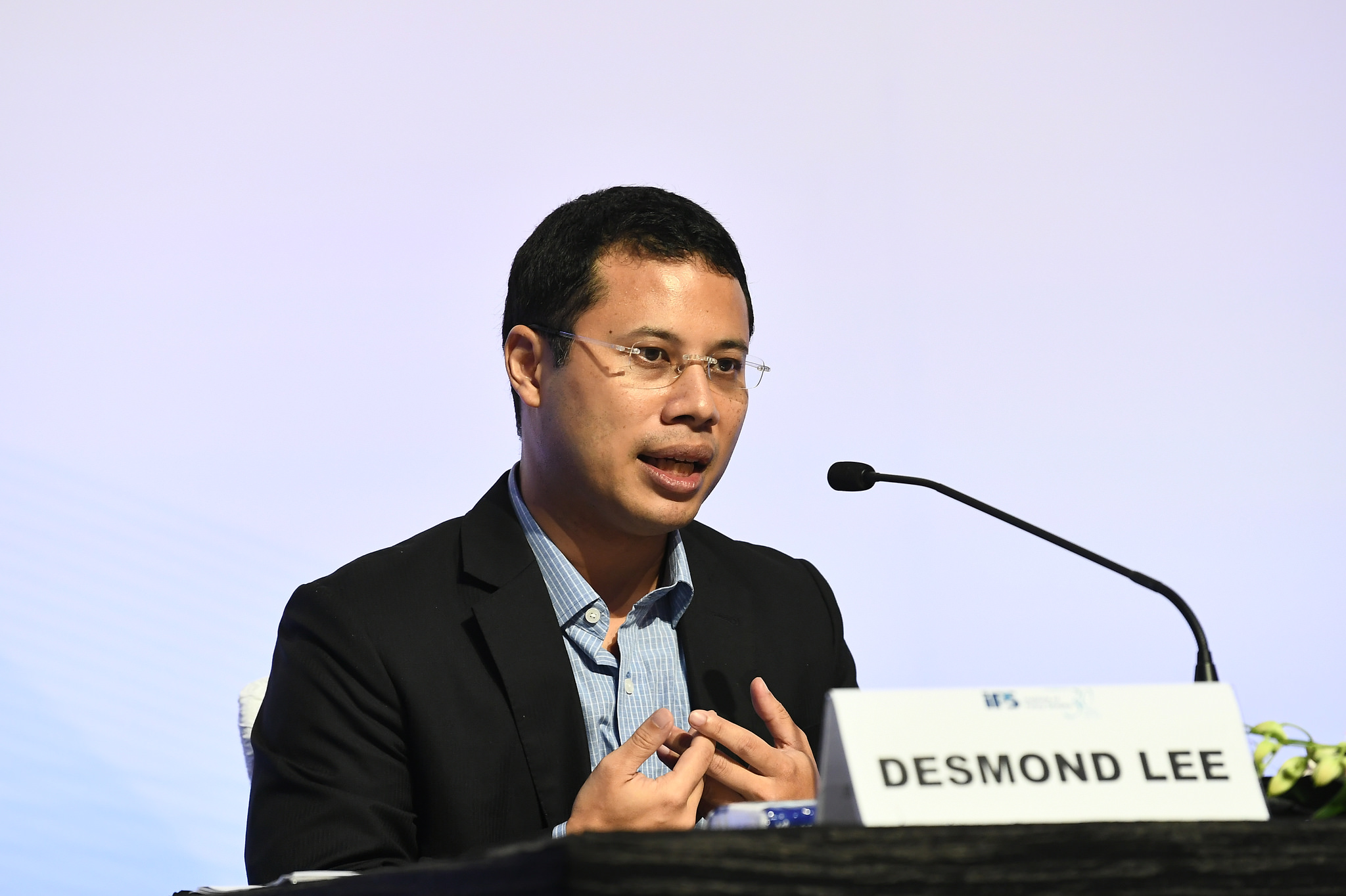Among numerous very weighty topics brought up at Friday's Institute of Policy Studies 30th anniversary conference was Section 377A.
And tackling it on the second morning panel (after Manpower Minister Josephine Teo earlier in the day) was Minister for Social and Family Development Desmond Lee, who addressed it in significant detail and said the ongoing debate has been "a deeply fraught issue".
"Our society, you've seen the polls. You've seen the polls and they are reflective of people's innermost values and emotions. It is a deeply-fraught issue because it is not just something that the external environment can pose. But it is in people's hearts and emotions, and it's not entirely just purely a rational thing."
More than an issue of the law itself
He acknowledged the numerous arguments made by current and former Attorneys-General and former high court judges about constitutionality, legality and appropriateness of "a law such as 377A", and on that front, he said he will defer to the courts — there's currently a second constitutional challenge on its way up to the Court of Appeal.
He said, however, that 377A has become more than a legal argument, though:
"But let's talk about the broader social undercurrents that make the focus on 377A a bit larger than it should be. Because it's a larger picture of different segments of society seeing a different future for Singapore society.
And one group, a large group — some are religious, some are not, traditional, conservatives, even futurists who feel a particular way about where society should head or remain — feel that well, the family, man, women having children, procreating is a structure that has served us well.
We should continue to support it, we should continue to enable them, but when you have an alternative approach by activists who say well, our vision of the future of Singapore's society is one where you can have marriages of a different form, of two men, or two women and different structures of the family. Or three women or two men. Or having a society where family and marriage is no longer so important, for example in some Nordic countries where marriage isn't a precondition to having a functioning family. But those are very very different societies."
He elaborated further that this debate is about two differing visions of where Singapore's society should proceed:
"... if social change was easy, and social change is not contestable, then I think that's not social change of substance. Here we're talking about not just a law, whether it's enforced, whether it's legal. The majority see this as a signpost of moral values; they see it as a signpost of the structure of the norm.
But to activists and those who feel a need for inclusiveness for persons with LGBT orientation, they see this as an important gate to pass in order for their vision of society to evolve."
Conversation must be robust, respectful
Lee continued by highlighting the fact that Singapore's society has evolved drastically in terms of its acceptance and destigmatisation of LGBTs over the past two decades, but we also need to be aware of the "very, very contrasting visions of what the future will be for our children and grandchildren":
"I think the conversation, the dialogue must continue, it must be robust, it must be measured, it must be respectful. I think if our society can navigate that we will be able to better come to some consensus on the future shape of society. And our children must decide for themselves."
Lee pointed out also that this is such an emotionally thorny issue that even in countries where legally or judicially, laws similar to 377A have been abolished or declared unconstitutional, doing that has not "settle(d) the matter, the hearts and minds of people".
"... these have not settled society, these have not settled groups of people who feel very passionately and strongly about how their children and grandchildren should be brought up."
Sociology prof: Singapore needs to create a safe space for the marginalised
 Photo by Jacky Ho, for the Institute of Policy Studies, NUS
Photo by Jacky Ho, for the Institute of Policy Studies, NUS
Lee's fellow panelist, Sociology professor Paulin Tay Straughan, used the example of the CMIO (Chinese, Malay, Indian and Others) race debate as an analogy for this discussion, noting that talking about race was a "very difficult conversation for our first generation leaders".
"Now, we take it for granted. CMIO, everybody is high-fiving and now wanting hyphens everywhere."
Therefore, she stressed, change takes time, and she argued that in the case of 377A, it is not a government problem, but "a people, a community problem".
"And as a community, I think, we need to learn how to embrace diversity. It's not going to happen overnight and there's a certain type of activism that is going to push the agenda two steps backwards when others have moved it one step forward. So. here, culture is important."
[related_story]
And here's Straughan's recommendation on how best a pro-LGBT activist in Singapore can find ways to make advances in society on this front:
"That's why you learn to identify where the nexus of influence is and situate yourself in that nexus. Learn to identify where the pain points are and see if you can resolve that so that it becomes a win-win situation, because no change is going to come about especially when you're challenging status quo if you're expecting that the other side concedes in order for you to gain.
So in the conversation on inclusiveness and diversity, there is a happy landing point and that is: to be inclusive makes us stronger...
So every person on board counts, and that person may not look like you or I, that person may be suffering from mental illness, that person may have alternative sexual orientation, so the important question then is, how can we bring them on board so that they can roll in their spot as fast as I can roll in my spot?"
Parents look to govt as moral compass
Straughan also noted that she appreciates the dilemma and struggle our ministers like Lee face:
"I cannot imagine how to answer to my many many friends, respectable colleagues who have alternative sexual orientation, and to recognise their role in our society, but at the same time we also understand the pain and the concerns of parents.
Parents are very worried, right, and here is the difficulty that poor Minister has because parents look to government as the moral compass. Parents want to be able to say 'this is right'. Parenting in grey is very very difficult and challenging, so parents want to be able to say 'this is right, this is wrong, stay with the right, avoid the wrong'."
She explained these concerns parents have come from fear of the social stigmatisation that continues to exist for LGBTs, people with mental illnesses and disabilities too — therefore, we need to work toward creating a safe space for these marginalised groups to "step out".
"So perhaps the first thing that we need to do is to create a safe space."
More stories from the IPS 30th anniversary conference:
Top image by Rachel Ng.
If you like what you read, follow us on Facebook, Instagram, Twitter and Telegram to get the latest updates.
